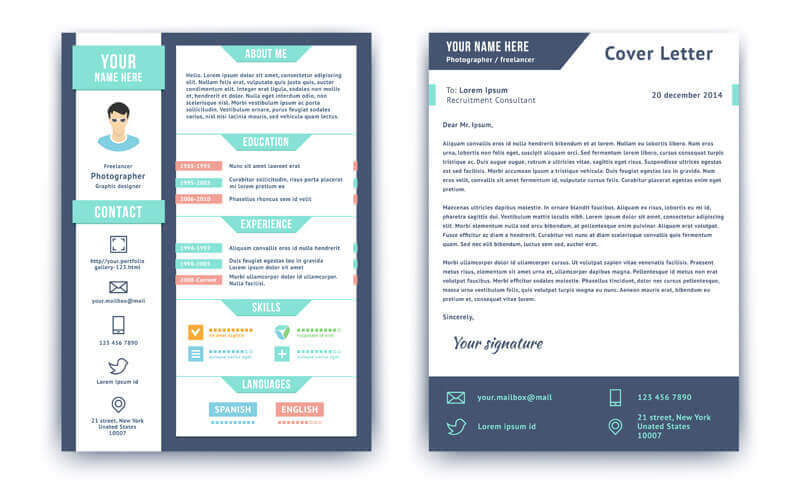The cover letter accompanies a resume and is its proper "companion."
The resume might be thought of as "needing an introduction." You may do this introduction yourself, in person. Or someone else, perhaps a friend who works at the organization, may do it for you. Or the cover letter can serve as your "introduction."

But you do need an introduction. Don't just attempt to "barge your way in."
Cover letters provide an opportunity to deliver a more personalized message to the recipient; the resume itself is usually produced in quantity-25, 50, 100 or so-and there is little chance to customize each one for individual employers.
But the cover letter provides the perfect place to do this customizing, to make the communication a personal one between employer and applicant.
Your cover letter should always be typed, on a very fine quality office-type typewriter... or on a letter-quality or laser-based computer printer.
It would be foolish to prepare a first quality resume and then to include with it a cover letter typed on an old home-portable typewriter... or on a dot-matrix computer printer.
Do it right! Doing it right also means that you never mass produce a cover letter. Cover letters are individually prepared, individually written, individually typed or printed, and the material in it should be aimed directly at the target. . . the market... the recipient.
Cover letters which begin "To Whom It May Concern:" or "Good Morning," or "Dear Sir or Madam:" are as incorrect as an uninvited guest at a formal party.
Impersonal letters are not given a warm reception by employer. They may, indeed, be treated the same way as you treat mass-produced advertising materials you receive in the mail.
They go into the wastebasket!
Don't Send Cover Letters to Strangers
Because the cover letter is a personal form of correspondence, you should use the name of the person who will receive the letter. Learn it, and then spell it correctly.
If you are using the cover letter to send a resume as a follow-up on a phone conversation or after a face-to-face meeting, you will ruin a wonderful opportunity if you misspell the name, title, the name of the organization, or even a word within the letter.
In a cover letter, you have the opportunity to be personal and specific…..and to highlight something which may be directly related to the specific job in question . . . and which you may have neglected in the resume itself.
It also provides an opportunity to repeat something from the resume, but which may be "buried" toward the end, or in the middle and would not be immediately noticeable.
The Golden Rule for Job Hunters
Always go through the back door. Get to know someone who works at the organization. Use her or his name to get in personal contact with someone in the department you hope to work for.
If you take the time and trouble to learn the name, and make the acquaintance of, someone who works at the organization, you will gain a tremendous advantage!
Do not break this rule! Letters from strangers rarely receive much attention. Phone calls almost never do. But phone calls or letters from friends-or from friends of friends-get attention!
Would you ever turn away the friend of a respected personal friend, or of a business colleague, who came to you for advice?
Of course not. And neither would the potential employers you contact.
The Network Advantage
Your network consists of the people you know, and the people they know . . . and the people all of them know. So, within a phone call or two, you can tie into this vast "network."
For job hunters, your personal network is of great importance.
What if you don't know anyone in the organization you're targeting and hope to work for?
Use your network! Use, and continue using, the names of people you know, and the people they know, to get the name of someone working in the organization, or in the field of work you hope to enter.
But what if you don't think anyone in your network of contacts knows anyone there, either? Should you conclude that you're "out in the cold" and must use the front door?
No - Don't give up so quickly.
Through your network, you can always find the name of someone in the organization. Simply keep looking! It may take a few extra hours or a few more phone calls. (Some of them may be long-distance calls, so be prepared!) But if you keep looking, you will find the access route to your contact.
